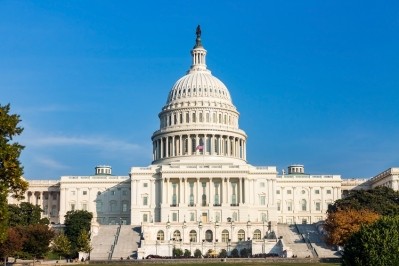State based laws on supplements would result in unworkable tangle of rules, stakeholders argue

The law, which was introduced recently by Rep. Kay Khan, D-Newton, would mandate that these kind of products not be sold to minors in the state. If the law were to pass, such products would be behind the counter and could only be accessed by management-level store personnel. The law would also require a prominent, comprehensive warning placard be displayed that would list such dangers as liver failure and death that Rep. Khan believes are associated with these products.
Proposal seen as wrong approach
This is not the first time Rep. Khan has introduced the bill. The present bill appears to be similar to the previous iterations in most respects, said Ingrid Lebert, senior director of government relations for the council for Responsible Nutrition. Lebert said she hadn’t seen the precise bill language yet. Rep. Khan is a psychiatric nurse by profession and is reportedly concerned about the use and abuse of these kinds of products among young people with eating disorders.
“This is the third time we’ve seen Rep. Khan introduce this bill, and this is the third time we are opposing it,” Lebert told NutraIngredients-USA. “We understand the concern with the abuse issue but we think this is the wrong approach.”
Need for harmonization
Michael McGuffin, president of the American Herbal Products Association, said laws such as Rep. Khan’s cannot be allowed to go through, because it would create an unworkable tangle of regulation that ultimately would hurt consumers.
“When the groups in this industry address these issues, whether it’s APHA, or CRN, or NPA, we are advocating for consumers. A main point of contention here is that we need to support harmonized regulation in all 50 states to support interstate commerce that is properly regulated. That’s good for all Americans as well as for this industry,” he said.
“This is a well regulated class of goods. There are already excellent controls in place. Clearly Rep. Khan disagrees,” McGuffin added.
Steve Mister, president and CEO of CRN, said the effort to specially regulate these products in Massachusetts is built upon what his organization believes is a faulty premise.
“There are a few people who seem to have convinced themselves that there is a relationship between dietary supplements and various eating disorders, body dysmorphia disorders, those kinds of things. They seem to believe that if they can just restrict or disincentivize the sale of these products the problem will get better. But it won’t, because there is no causal connection between the two,” he said.
Taxation paper adds fuel to fire
The controversy surrounding the sale of these products in Massachusetts was inflamed recently with the publication of a paper from a group of researchers associated the T.H. Chan School of Public Health at Harvard University. In September 2018 the group published a paper titled “Could a tax on unhealthy products sold for weight loss reduce consumer use? A novel estimation of potential taxation effects.” The paper was published in the journal Preventive Medicine.
“Taxation may be an effective public health strategy to reduce purchasing of these potentially dangerous OTC drugs and supplements and may be most protective for households with teens and daughters,” the authors argued.
Mister sent in a commentary on the paper, which the journal published. He argued that what lead author S. Bryn Austin and her fellow researchers called “abuse” was merely data representing widespread use of lawfully sold products. Mister said the authors also misrepresented data from adverse event reports and emergency room visits to support their hypothesis.
“The authors' mischaracterization that usage of these products without consultation of a healthcare professional is ‘abuse’ shows open hostility toward consumer self-care. Moreover, no evidence of causality between use of OTC products and eating disorders is offered to support this hypothesis. This lack of causal data exposes public policy recommendations unsupported by facts,” he wrote.
No new wave of state laws
McGuffin said that while this is the third go round for Rep. Khan’s legislation, he does not necessarily see a wave building for activist legislatures to regulate dietary supplements on a state-by-state basis.
He characterized recent attempts at new state rules on supplements in Puerto Rico and Arizona more as revenue grabs rather than a dissatisfaction with the scope of federal regulation. But he said the threat of these state-based regulations is something the industry needs to remain vigilant about.
“If we could go back to 1994, we would have gotten a preclusion of state law written into DSHEA,” he said.
















